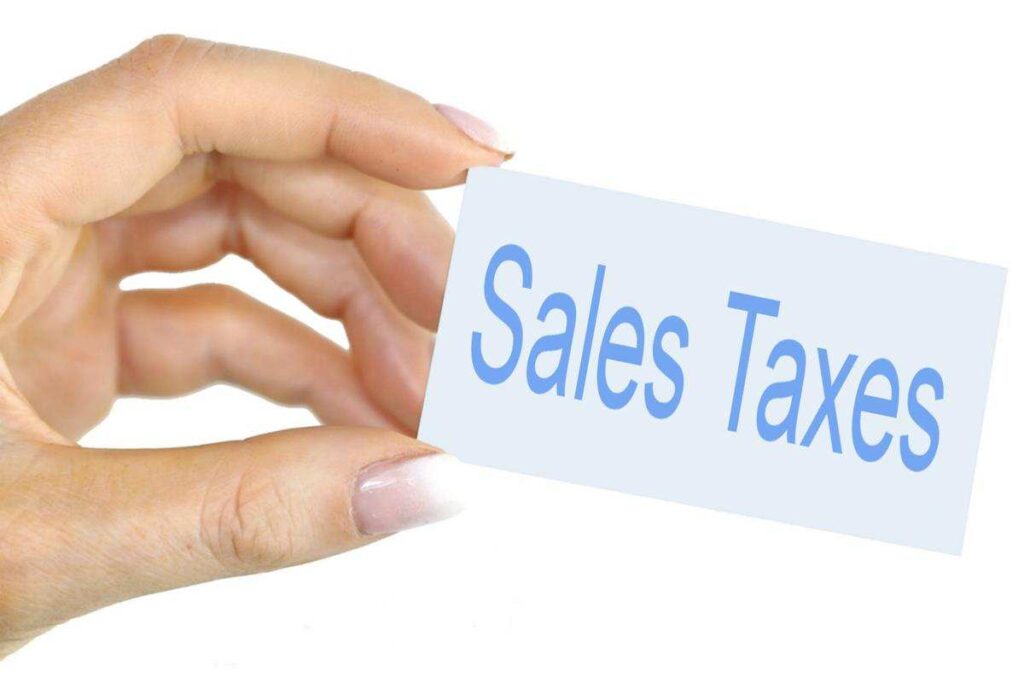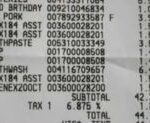Since June 2018, a Supreme Court ruling on sales tax collection requirements has been crushing small business owners that make internet sales. Recent state regulations focused on the Marketplace Facilitator has eased some of the burdens for small businesses and individuals who sell products via the online marketplace.
A Marketplace is defined as a physical or electronic forum; including, but not limited to, a store, booth, internet website, catalog, or a dedicated sales software application, where tangible personal property, commodities, or services are offered for sale, lease, or rental.
In general, a retail sale is taxed based upon the location where the purchaser takes possession of the purchased property. Before the Supreme Court ruling on South Dakota vs Wayfair, Inc., sellers typically followed the seven rules of collecting sales taxes and collected sales taxes on the taxing jurisdictions they had in common with the seller. The buyer was then responsible for paying any additional user tax to their respective taxing jurisdictions, where the seller did not already collect sales taxes. When the Supreme Court ruled in favor of South Dakota, many states wanted “in” on lost sales tax revenue as well, and enacted similar internet sales tax laws.
The new patchwork of state regulations plunged the sales of small business owners who sold products online into a morass of constantly changing tax regulations. States were also plunged into chaos, as their new regulations forced them to deal with thousands of sales tax applications from far-flung business entities attempting to remain compliant.
Something had to give, and after nearly a year and a half of turmoil and delayed implementations of tax collection measures, most states began creating legislation that required marketplace facilitators to collect and remit sales tax on behalf of third-party sellers who were more often than not small e-commerce businesses.
What is a Marketplace Facilitator?
A marketplace facilitator is any business or organization that contracts with third parties to facilitate retail sales. A marketplace facilitator is a multi-sided platform, such as Amazon and eBay, that connects sellers and buyers via an online platform.
Marketplace facilitators enable these sales by listing products, taking payments, collecting receipts, and in some cases, even assisting in the shipment of goods. When we refer to marketplace facilitator laws, we’re talking about the legislation surrounding the sales tax responsibilities of these marketplace facilitators.
States and Small Business Both Benefit from New Marketplace Facilitator Legislation
These new marketplace facilitator laws have had a major benefit to the states because they can collect more sales tax from fewer entities. This also results in simpler compliance issues for states to enforce. For marketplace sellers, the benefit lies in having sales tax for certain transactions handled by the facilitator.
Marketplace facilitator laws grew from the idea that a state could collect all of the required sales tax from only a few large entities, such as Amazon and eBay, rather than from thousands upon thousands of individuals and/or smaller companies.
Moreover, most states defined safe-harbor thresholds to reduce the sales tax burden on micro-businesses. Safe-harbor thresholds were based on a business’s total annual sales or the number of transactions. Many states adopted an annual sales threshold of $100,000 or 100 transactions in their state before requiring the business to obtain the appropriate sales tax license. Therefore, since sales for many small businesses fell below the individual state-mandated safe-harbor thresholds, the states missed out on these sales tax revenues.
By placing the obligation of sales tax collection on a marketplace facilitator, rather than on individual sellers, these laws enable the states to force compliance across the entire state with a few entities, and not lose the sales tax revenue for sales that fell under each small business’s safe-harbor thresholds.
Furthermore, it dramatically reduces the cost of compliance for the states to claim their revenue. By placing the burden of sales tax responsibility on these larger marketplace facilitators, it lessened the burden of sales tax administration on small businesses who use the marketplace facilitators to sell their products.
Without the marketplace facilitator laws, the states would then have to spend significant time and resources to go after non-compliant small business sellers if the individual small business seller chose not to follow the law. That’s a lot of time and money required for the states to get their sales tax revenue.
Marketplace Seller Requirements
Marketplace sellers generally do not have the rights, obligations, and liabilities of a retailer for sales facilitated by a marketplace facilitator in or through a marketplace. A marketplace seller that sells exclusively through one or more Marketplace facilitators is not required to obtain a sales tax license. For marketplace sellers, marketplace facilitator laws mean that your marketplace facilitator will handle collecting and remitting sales taxes on behalf of your sales in states where the marketplace facilitator is compliant.
NOTE: Not all states have enacted marketplace facilitator sales tax legislation. In these states, the seller is subject to the safe-harbor thresholds and is still responsible for following the sales tax collections rules enacted by these states.
If a marketplace seller previously opened a sales tax account and obtained a sales tax license in a state where all sales are handled by a marketplace facilitator, the marketplace seller can either close the account or file returns reporting no sales activity.
A marketplace seller may still wish to obtain a wholesale license from the state’s Department of Revenue if they are selling tangible property solely to businesses that will resell the items or incorporate it into their products. Many suppliers require marketplace sellers to present either a wholesale or a retail sales tax license to purchase inventory tax-free for resale. A retail tax license allows you to sell both wholesale and retail. A wholesale tax license ONLY allows you to sell wholesale. A wholesaler is required to file only one annual return to confirm that it did not make any taxable sales.
Multichannel Seller Requirements
A marketplace seller who also offers tangible personal property, commodities, or services for sale through other means—such as their store or on their website—is a “Multichannel Seller”. For any sale a multichannel seller makes that is not facilitated by a marketplace facilitator in a marketplace, the multichannel seller is subject to all of the same licensing, collection, remittance, filing, and record-keeping requirements as any other retailer.
A multichannel seller will generally be required to obtain a sales tax license, collect sales taxes, and file sales tax returns.
Small Retailer Exception
A multichannel seller who does not maintain any place of business in a state directly, indirectly, or by a subsidiary is exempted from state sales tax licensing and collection requirements if the multichannel seller’s direct sales of tangible personal property, commodities, and services annually in both the current and previous calendar years were less than the states established safe-harbor thresholds. For example, the safe-harbor threshold in Colorado is $100,000 and there is no transaction threshold.
In determining exemption based on the safe-harbor thresholds, a multichannel seller should not consider any retail sales that were facilitated by a marketplace facilitator through a marketplace. So if a multichannel seller’s retail sales made in Colorado in the previous year were $150,000, but $100,000 of that came from sales made through a marketplace facilitator, then the remaining $50,000 in sales would place the retailer below the Colorado safe-harbor threshold of $100,000 in sales required to obtain a Colorado sales tax license.
If the multichannel seller exceeds the safe-harbor threshold for direct sales made outside of a marketplace facilitator in the state, the business would be required to register for a sales tax license within 90 days after this threshold is exceeded. Collection must begin on the first day of the month following registration.
A multichannel seller who maintains any place of business in Colorado directly, indirectly, or by a subsidiary must obtain a retail sales tax license regardless of the volume of sales made in Colorado.
Is your business sales tax compliant? Would you benefit from making sales only through a Marketplace Facilitator?












